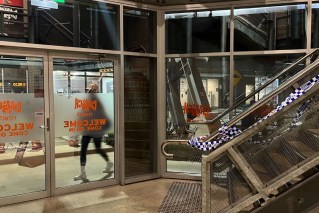We’re in the middle of a pandemic and Australia’s emergency departments are quiet


Under lockdown, Australians are displaying less risky behaviour.
As hospitals around the country battle with COVID-19, emergency departments are unusually quiet.
It is not necessarily what you would expect in a pandemic, but Australia’s hospitals are reporting fewer people coming through the doors as more of us are staying inside and out of harm’s way.
There are also anecdotal reports of an increase of home improvement accidents and ‘TikTok injuries’, where people hurt themselves making videos for the social platform.
Although national figures are not available, some busy emergency departments recorded a fall in patient volume by 50 per cent.
St Vincent’s Hospital Melbourne has experienced a 35 per cent drop in patients coming to the emergency department and in Geelong, the University Hospital is down to 170 from an average of 220 a day.
“The number of people seeking treatment at the University Hospital Geelong emergency department has reduced by about a third over the past four weeks, dropping to approximately 150 per day,” Barwon Health emergency department director Dr Michael Sheridan said.
“Work and sport-related injuries are significantly down, and we have noticed presentations of heart and stroke issues have reduced.”

Emergency departments are receiving fewer patients. Photo: AAP
In South Australia, hospitals are seeing almost half the number of patients.
“We’re seeing record low numbers,” said Katrina Romualdez, acting medical lead at the Royal Adelaide Hospital emergency department.
“Since the Royal Adelaide opened we’ve been pretty busy from day one, having upwards of 200 presentations a day,” Dr Romualdez said.
“In some cases, we were hitting 300 a day in the last couple of months.
“Now we’re seeing 160 to 170 patients a day, which is quite a lot lower than what we were before.”
But as Australians choose to get handy at home on the weekend, there has been a surge in renovation-related injuries.
At Westmead in New South Wales, patient numbers are down but medical staff have treated a surge in home improvement injuries.
“Westmead Hospital emergency department is experiencing fewer presentations than normal, including less trauma and sport-related injuries,” emergency department nurse Donna Robertson said.
“There has been a slight increase in injuries related to home repairs and home cooking.”
Over January, February and March, Queensland health data showed public hospitals had 542,712 presentations, compared to 512,394 in the same months in 2019. That is up six per cent.
Although they don’t have the full data yet, Queenslanders seem to have caught up with the national trend, with patient numbers dropping in the first weeks of April.

Social distancing has helped keep other virus cases down. Photo: AAP
Australian Medical Association of NSW president Dr Kean-seng Lim said there are probably two drivers for the drop in numbers and one could actually be quite dangerous.
“They are both related to social distancing measures, and the lockdown measures which are going on,” Dr Lim said.
“One of them is an increased awareness of illness overall.
“I think what we’re seeing is an increased community awareness and community members thinking carefully before they access any service.
“That part is a little bit concerning because it runs the risk that conditions that could be managed better may not be.
“We’re aware there is a reduction in the numbers of people having routine blood tests done. So, those with chronic heart disease may not be monitored as closely as they should be.”
The other is related to the simple fact fewer people are travelling, alcohol-related violence has reduced, and we are not spreading as many bugs, he said.
“They’re not driving as much, so there is less injuries due to car accidents which would otherwise account for a reasonable percentage of intensive-care admissions,” he said.
“So, this is a positive side to the lockdown measures. There is less transmissible illness around as well as accidental injury.
“The lockdown measures reduce things like influenza, gastro and the common cold. This is actually a side benefit.”
Although quiet waiting rooms have some upsides, healthcare workers want people to know it is safe to go to hospitals if they need.
“We want to thank the public for respecting that emergency departments are for emergencies only,” Ms Robertson said.
“In the event of an emergency please do not hesitate to dial triple-zero and be assured that we have capacity to care for you.
“Anyone with flu-like symptoms should self-isolate and call ahead before seeking medical help at a GP, hospital or dedicated COVID-19 clinic.”








